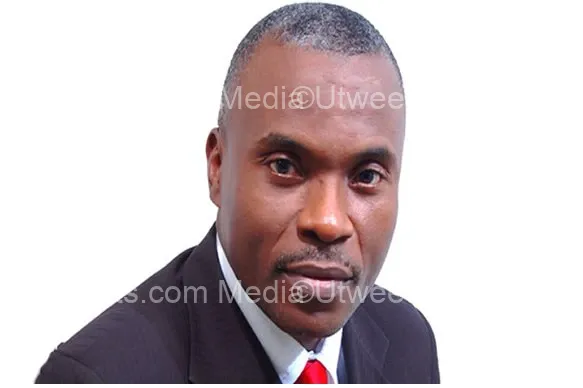Last week, when I saw the myriads of social media posts criticising newspaper columnist and TV presenter, Dr. Reuben Abati, over his comment on Arise TV on the issue of the Igbo not selling land to non-Igbo, I searched for the video and watched it in full to hear his exact words and understand the context. He was reacting to the praise Senate President Godswill Akpabio gave to the Igbo at the Night of Tributes for the late Senator Ifeanyi Ubah. ...Tap To Read The Full Story Here | ..Tap To Read The Full Story Here...
Because of the furore that followed Abati’s comment, it became part of Arise TV’s “Trending with Ojy Okpe” the next day. The anchor, Ms. Ojy Okpe, asked him for his comment on that, but Abati lost his cool and used the word “nonsense” twice on air, browbeat the anchor, and insisted that he made the comment in a certain context and would not repeat himself. Happily, Okpe handled the situation with maturity, even while making it clear to Abati that the reaction of the public was that an ethnic group should not be tarred with the same brush based on a single story.
Let me reproduce Abati’s exact words on Arise TV on Thursday, November 21, 2024, to make the discussion straight-forward. After analysing some positive aspects of the Igbo, Abati concluded thus, “However, let me give the flip side. Chief T.O.S. Benson, former Minister of Information, now late, on one occasion at the Nigerian Institute of International Affairs—and I’m not making this up. He said it publicly.
If anybody can contradict me, let them do so. He said something about Igbo people. He said he had an Igbo wife and had an Igbo daughter. That he wanted to buy land in Igboland for his daughter, for his wife. He said, ‘I am getting old.’ T.O.S. Benson is getting old. ‘Let me build in this place for my wife.’ He said that his in-laws told him that they don’t sell land to outsiders.
“That is the irony of Nigeria—about the politics of federation of unity. The same Igbos who are so industrious that they are all over and they do well in other parts of Nigeria. If you go as a non-Igbo man to go and buy ‘umunna’ land, you will be told that you don’t belong, even as an in-law. That is by way of an aside. But these are the issues in my view.”
Yes, the context was that Abati was referring to the experience of Chief Benson. If he had limited it to that, it would not have raised any dust. But note his words that tell a different story, “He (Benson) said something about Igbo people. That is the irony of Nigeria—about the politics of the federation of unity. The same Igbos who are so industrious that they are all over and they do well in other parts of Nigeria, you go as a non-Igbo man to go and buy ‘umunna’ land, you will be told that you don’t belong, even as an in-law.” With his conclusion, Abati extrapolated the experience Benson had with his in-laws to the entire Igbo ethnic group.
But for those who don’t understand what ‘umunna’ means, let us explain it and show how even what Benson’s in-laws said to him was not peculiar to the Igbo. The “umunna” is the largest Igbo family unit made up of the descendants of an ancestor for up to ten generations. One key factor about the umunna is that marriage is not accepted between two people from the same umunna.
Members of an umunna usually live together in one part of the community. Each male is bequeathed a parcel of land by his own father, with the first son inheriting the obi, or “palace,” of their father. The daughters usually don’t inherit any land within the ancestral land because they are expected to marry outside the umunna. However, while giving the daughter her own inheritance or dowry, a man with enough resources could allocate a parcel of land he has or bought outside the umunna to her.
It is therefore seen as the height of irresponsibility for someone who has inherited this portion of land from his father to sell it off. The question many would ask such a person is: “Where will you be buried? Where will the marriage of your daughters be conducted?” Even if one has dozens of lands and houses outside the umunna and decides to sell his ancestral land, it is seen as one selling his birthright and becoming rootless. Urbanisation has affected this Igbo way of life in some respects.
But this issue of outsiders not being allowed to buy land from certain parts of the community is not peculiar to Igbo land. For example, from the 1980s, when I first visited Lagos and spent some time with my kinsmen who were selling motor and motorcycle spare parts in Idumota, Lagos, I noticed that non-indigenes of Lagos Island could not buy land there. On Docemo Street, Church Street, Bajulaiye Street, Adeniji Adele Street, and other streets within the area, some of my kinsmen had property that they used as their shops and warehouses.
I noticed that the indigenes usually lived on the top floor of the three-story buildings, while the rest was used by such “owners.” I enquired from those I saw as the property owners and was told that as non-indigenes of Lagos Island, they were not allowed to buy property there because it was close to Iga Idungaran, the palace of the Oba of Lagos.
However, a lease agreement was entered into between them and the owners of the land to build a multi-level house on the land. The landowner would occupy the top floor, while the lessee would use the rest of the floors for some years. At the end of the agreed period, the building and the land would become the property of the landowner.
Another example is what obtains in northern Nigeria. The name “Sabongari” is popular in Nigeria because that is where non-indigenes in most towns of the North-East and North-West live. Non-indigenes are not allowed to live within the quarters of indigenes in Kano, Katsina, Sokoto, Maiduguri, and other northern towns and cities.
Again, on a personal level, as a young man searching for a place of residence in Lagos, I was rejected on many occasions by landlords who said they would not accept an Igbo tenant. And it was not peculiar to me. Many of my relatives and friends suffered the same fate. Initially, I would feel sad, but I would keep on searching for a landlord that would not discriminate against me because of my ethnicity.
I have also paid for plots of land in Lagos State and Ogun State but never got them till this day. Some of the plots even included the ones the Lagos State Government received my money and that of my relatives and friends who gave me money to apply for them for government land because they had been scammed by individuals and believed government would be different. The plots were allocated, a survey plan was given, and a certificate of occupancy was issued, but since 2006 to this day, no land has been given to us despite all the efforts we have made.
Should I then use my experience and that of my relatives and friends who have suffered these challenges in the South-West, North, or South-South to stereotype the regions? No. We simply counted our losses and moved on.
It is, therefore, erroneous to use single stories to tar an ethnic group. If it is done by some uneducated and unexposed person, it can be waved off as ignorance. But when it comes from a PhD holder, columnist, TV presenter, and former presidential spokesman like Abati, it is dangerous because it provides ammunition for mischief-makers. The narrative would be: “Since Dr. Reuben Abati said it, it is true. They want to take over our land without allowing us in their land. So, we must chase them out.” That is how genocides start. All people of goodwill must reject this type of narrative.…READ THE FULL STORY FROM SOURCE : …READ THE FULL STORY FROM SOURCE
|Quickly see it before it’s deleted|: 18+ See viral h0t $ex t4pe video of politician wife leaked on social media.



